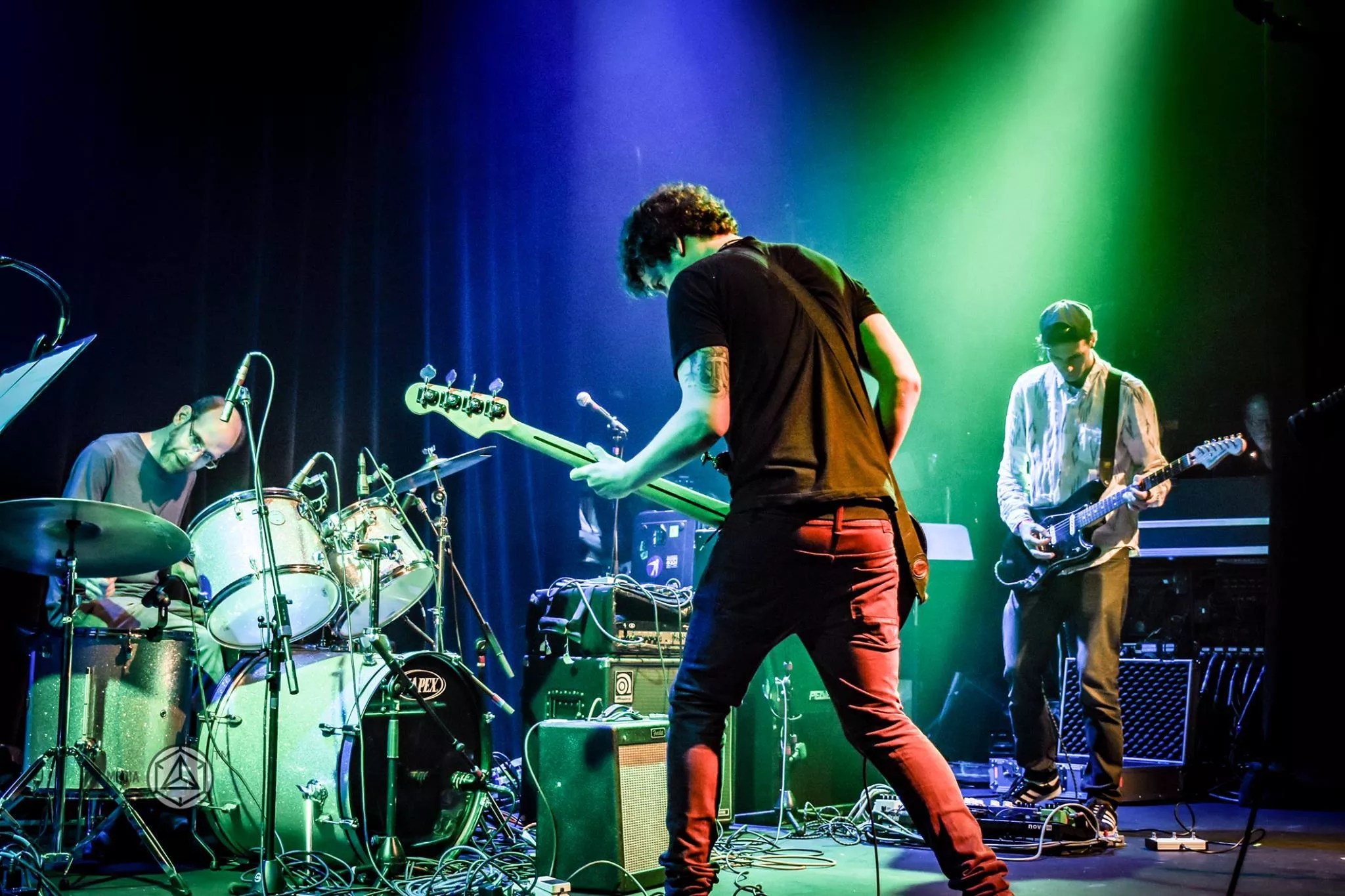
ALOC Media

Audio By Carbonatix
No singers were harmed in the making of Denver’s Black Market Translation.
But Black Market Translation, in its present incarnation, is notably singer-free. Granted, the bandmates gave having a singer the good ol’ college try. Two singers, in fact, albeit at separate times. They burned through them both – creative differences and whatnot – before deciding that making fully improvisational and instrumental punk was their true calling.
As for the singers themselves? One resigned by way of just not showing up for practice.
“We actually don’t know what happened to him,” says bassist Matt Clifford with a laugh.
“We’ve always enjoyed playing improv, and we’d do improv while we were playing with the singers in between songs, much to their dismay,” he adds. “After one singer quit, we had a show booked, and we asked the promoter, ‘Is it cool if we come and improv?'”
The promoter agreed. Black Market Translation never looked back. The band – its lineup since streamlined to Clifford, drummer Justin Anderson and guitarist Chris Eason – decided to do all improvised, all the time, on the record and live. I reach Clifford and Anderson by phone at their shared house in the Villa Park neighborhood, where they live together and practice in the basement (a nice improvement on their budgets after spending several years living in studios and renting out rehearsal space in Capitol Hill).
By now, all three members qualify as at least semi-longtime Denver residents: raised in New Jersey, Clifford moved to town eight years ago following a stint in New York City, Anderson and Eason moved in the late
’90s from Pennsylvania and Maine, respectively. Anderson met Clifford “like all creepy musicians,” Clifford jokes, which is to say by responding to a Craigslist ad. The two of them found Eason the same way.
“We’re all East Coast. That’s probably why we get along,” says Clifford. The band’s original incarnation, properly founded in 2014, was, in fact, improvisational punk. The vocalists and fixed set lists with individual songs came and went by 2016. The band’s first record, Yakumo, arrived in 2017, followed by this year’s more sprawling, darker 1.31.
It’s worth noting that the title 1.31 is literal, not symbolic. “The album is a snapshot of how we sounded on January 31,” says Clifford. On that day, the trio went into the studio with nothing, recorded three hours of completely improvised music, and then set to work editing and separating the “chunks” from the “noise” – their own terms. Anderson edited and sequenced the lion’s share of the record, which clocks in just short of an hour.
1.31 is a lot of things: occasionally frenzied, occasionally brooding, and prone to extended bouts of throttling psych-punk crescendos; if Can and King Crimson are the vintage influences here, Oh Sees and Nothing are the more contemporary counterparts. Clifford cites Lightning Bolt and Death Grips, admiring how the latter “can change on a dime and throw a bunch of things into the bag.” Anderson points to the more extended drumming that emerged in jazz in the 1970s (in no small part because of Miles Davis’s overwhelming innovating affect on the genre as a whole). But Anderson also concedes that “pretty much anything at this point is an influence.”
Being in Colorado, where Phish can – and does – sell out a stadium for multiple nights on an annual basis, the jam-band question can hardly be ignored. And Black Market Translation is not wholly opposed to the label, per se. “We’re the jam band because we don’t have anything to jam off of,” says Anderson, referring to their strict insistence on never circling back to previous riffs or musical themes. “We jam, but we don’t jam in the context of, we start with something and then jam off of it.”
“I think the audience can feel like they’re part of something unique [that] is only going to happen then and is a little more vulnerable than traditional songwriting. We’re putting ourselves on the edge, knowing that we’re probably going to fail a lot of times every show,” adds Clifford. “With most bands, when you go up with songs, it’s a bit more like, ‘We’re going to play these perfectly, and you will like them.'”
As for Colorado itself, Denver will remain home for the foreseeable future. Cannabis is legal, which helps. The mountains are nice. Their rent is comparatively cheap. But they also appreciate the local arts community, a far cry from Clifford’s experience in the New York scene which he recalls as “a pissing contest all the time about everything.” They love Mutiny Information Café, site of the punk and poetry night they started called (wait for it) Punketry.
“Everybody out here seems like they’re trying to do their own thing and figure out what that is, and I appreciate that about Denver,” says Clifford.
Black Market Translation is no exception to the rule. According to Anderson, innovation and experimentation are the only way forward. “You always have to try to put yourself on the edge of what you are familiar with and see what’s in uncharted waters,” says Anderson. “We put ourselves on that edge intentionally.”
Black Market Translation will host its 1.31 Cassette Release Party at 7:30 p.m., on Sunday, October 6, at Mutiny Information Cafe, 2 South Broadway. Admission is free.